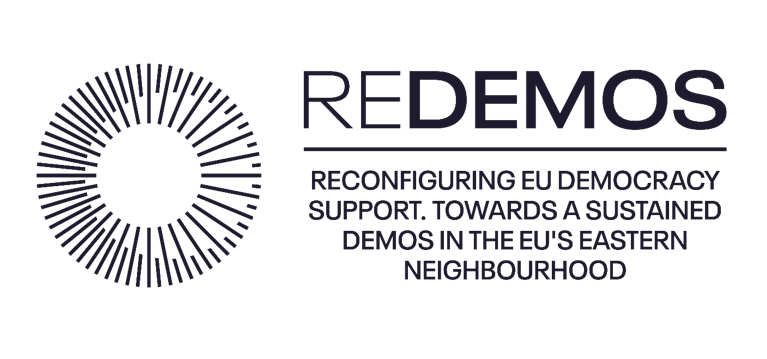
On Tuesday 28 February 2023, the webpage of the international research project REDEMOS – Reconfiguring EU Democracy Support. Towards a Sustained Demos in the EU’s Eastern Neighbourhood.
REDEMOS, which runs from January 2023 until December 2025, is directed by the Norwegian University of Science and Technology (NTNU) and brings together a total of 11 academic and research institutions – six universities, four independent think tanks (including IDIS "Viitorul") – and one small and medium-sized enterprise from across Europe.
This multi-annual, multi-million research project takes an in-depth look at the full range of political and governance regimes in the EU's eastern neighbourhood, from flawed democratisation in some countries to democratic regression and even repressive authoritarianism in others. REDEMOS aims to break new ground and suggest a comprehensive and transformative overhaul of the conceptualisation, policy-making and implementation of democracy in the EU's eastern neighbourhood.
The overall objective of REDEMOS is to develop a set of innovative policy tools to make EU democracy support policies more efficient, effective and sustainable. The anticipated project outputs will range from a holistic dataset summarising past democracy support actions and programmes to a set of working papers, policy documents, blog articles, visual reports, as well as workshops, conferences and more. Together with the participatory nature of the REDEMOS project, its results will be geared towards increasing citizens' involvement and participation in shaping future democratic structures in the EU's eastern neighbourhood.
The international research project ”REDEMOS: Reconfiguring EU Democracy Support – Towards a sustained demos in the EU’s Eastern Neighbourhood” is funded by the European Union's Horizon Europe research and innovation program under grant agreement No 101061738. The Associated Partner University of Surrey has received funding from UK Research and Innovation (UKRI) under the UK government’s Horizon Europe funding guarantee under grant number 10040721. The Associated Partner University of St. Gallen has received funding from the Swiss State Secretariat for Education, Research and Innovation (SERI). Views and opinions expressed are, however, those of the author(s) only and do not necessarily reflect those of the European Union, UKRI and SERI. Neither the European Union nor UKRI or SERI can be held responsible for them.